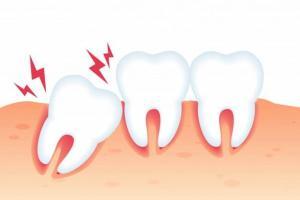Breast-feeding & Oral Health: Information & Benefits
Breast-feeding and oral health
Midwives and other healthcare professionals give new mums and dads a great deal of advice at prenatal classes. However, there is often relatively little information provided on breast-feeding and oral health including:
- Mother and child’s oral and dental development,
- Oral care of the young child with primary teeth, and
- Benefits of breast-feeding on dental and facial development.
This leaflet is designed to:
- Give mums and dads information to help them understand the many dental and oral benefits of breast-feeding as opposed to bottle-feeding,
- Assist in explaining the relationship between breast-feeding and dental/facial development of your baby,
- Indicate the benefit of breast milk in reducing dental decay in the early primary dentition
- Demonstrate to parents the need to maintain careful and effective cleaning of the primary teeth
- And at the same time inform parents of the dietary factors that play a role in causing tooth decay in primary teeth.
It is suggested that for the first 6 months of baby’s life, exclusive breast-feeding is the best option and then a combination of breast-feeding combined with solid foods is advised for the next 6-18 months, or as long as mother and baby desires1.
What are the general benefits of breast-feeding?
The general benefits of breast-feeding are well known and widely discussed with mums and dads at prenatal sessions with their midwives. Breast milk changes in composition as baby grows in order to suit their growth and developmental needs. Significantly, these changes include specific nutritional needs and immunological needs as the breast milk contains immune cells, antibodies and digestive enzymes to help maintain baby’s health, promote growth and protect them from infection1.
Oral benefits of breast-feeding – Malocclusion
The suction by a baby on the natural nipple creates a very efficient seal due to the nature of the nipple and surrounding breast tissue. This seal that is created by the perfectly designed soft tissues leads to satisfactory nasal breathing2. Those children who breath effectively through their nose, as opposed to mouth breathing, do not develop an open-mouth posture at rest and who may also develop excessive vertical facial growth leading to a long thin facial contour. 
Dental research has shown that exclusive breast-feeding as opposed to bottle-feeding results in a 60% reduction in the number of children suffering from malocclusions requiring orthodontic correction3. While many of these children examined were assessed at their deciduous dentition stage, indicators of malocclusion at this stage are a clear indicator of malocclusion in the permanent dentition.
Oral benefits of breast-feeding – Dental Decay
Breast-feeding has been found to have a protective effect on a young child’s teeth up to 12 months of age providing a degree of protection against the development of tooth decay5.
The bacteria most commonly associated with the development of acid that attacks the tooth surface resulting in decay is Streptococcus mutans. This organism thrives best on a sugar known as sucrose, which is present in baby formula used for bottle-feeding babies, and in most processed foods available these days. However, breast milk does not contain sucrose but instead contains lactose and therefore the organism is less able to metabolise this sugar to cause an acid-attack of the tooth surfaces6.
Furthermore, breast milk contains additional proteins, immune substances and enzymes that together have an antibacterial effect7 and also helps to neutralise any acid produced by the bacteria in a process known as buffering.
General dental advice for mums and dads
New parents need to know about the care of their baby’s teeth that will start to erupt within the first months of life. It is so important to establish a routine of tooth cleaning right from the start and it is also very helpful to use suitable toothpaste for baby teeth that contains fluoride at a reduced concentration to ensure the teeth are strengthened against future decay.
For more information, parents are advised to visit our website at www.nqsurgicaldentistry.com.au and investigate the extensive information available in the patient information area on care of children’s teeth, and many other areas of interest for patients.
contact the friendly team at NQ Surgical Dentistry today on (07) 4725 1656 or call in to see us at 183 Kings Rd, Pimlico QLD 4812
REFERENCES:
- WHO. United Nations Children’s Fund: Global Strategy for Infant and Young Child Feeding. Geneva, Switzerland
- Drane D (1966). The effect of use of dummies and teats on orofacial development. Breastfeed Rev. 1996; 4(2):59-64
- Peres KG, Cascaes AM, Nascimento GG, Victora CG. Effect of breastfeeding on malocclusion: a systematic review and meta-analysis. Acta Pediatr Suppl; 2015:104(467):54-61
- Peres KG, Peres MA, Thomson WM, Broadbent J, Hallal PC, Menezes AB. Deciduous- dentition malocclusion predicts orthodontic treatment needs later: findings from a population-based birth cohort study. Am J Orthod Dentofacial Orthop; 2015147:492-8
- Tham R, BowatteG, Dharmage SC, et al. Breastfeeding and the risk of dental caries: a systematic review and meta-analysis. Acta Pediatr; Suppl 2015; 104: 62-84
- Rugg-Gunn A, Roberts GJ, Wright WG. Effect of human milk on plaque pH in situ and enamel dissolution in vitro compared to bovine milk, lactose, and sucrose. Caries Res: 1985; 19:327-334
- Arnold R, Cole M, McGhee A. Bactericidal effect for human lactoferrin. Science; 1977; 263-265
BOOK AN APPOINTMENT
CALL US TODAY
07 4725 1656
